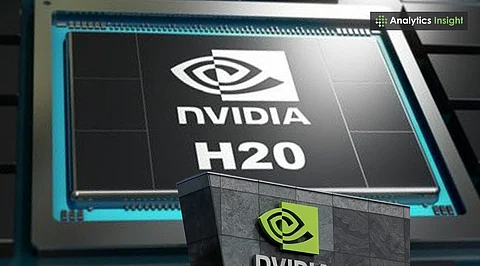

China's top internet regulator has flagged security concerns over the Nvidia H20 chip. The development casts doubt over the chipmaker's future in the Chinese market just weeks after the US reversed an export ban on this model.
The Cyberspace Administration of China (CAC) summoned Nvidia on Thursday to question whether the H20 chip contains ‘backdoor’ features that could compromise data security and user privacy.
The regulator showed concern over US proposals to embed tracking or positioning capabilities within artificial intelligence chips that might be used overseas for commercial purposes. These suspicions have once more revived geopolitical tensions in the tech space.
Nvidia developed the H20 chip specifically for China tech regulation after the US imposed restrictions on advanced semiconductor exports in late 2023. Amid a push by US regulators to enforce stricter export monitoring, the H20 chip is now under scrutiny. Senator Tom Cotton, for instance, introduced legislation requiring location verification for such chips.
During a high-profile visit, Nvidia's CEO, Jensen Huang, attempted to reaffirm the company's commitment to China. He met with Chinese officials, praised the country's AI progress, and emphasized the importance of the Chinese market for Nvidia's future.
However, the CAC's latest move must also be considered. The authority has so far chosen not to specify what action it might pursue but did speculate on broader national security concerns. Meanwhile, Nvidia also faces a separate antitrust investigation in China stemming from its acquisition of Mellanox Technologies.
This development is critical in the continuing US–China tech rivalry. The H20 chip, manufactured by Nvidia, was once thought to be a kind of strategic workaround to US export curbs. It has now become the center of attention for the escalated cybersecurity and trade tensions. The company allegedly received orders of 300,000 units of the H20 chips last week, pointing to strong demand.
Past actions offer clues: China previously banned Micron's products from key sectors and called for a review of Intel hardware. With the H20 chip under inspection, the move could either be a warning or a precursor to another ban.
Now, Nvidia must balance innovation, compliance, and diplomacy while the global AI chip race accelerates. This story is not just about technology but also about trust, regulation, and strategic control.
